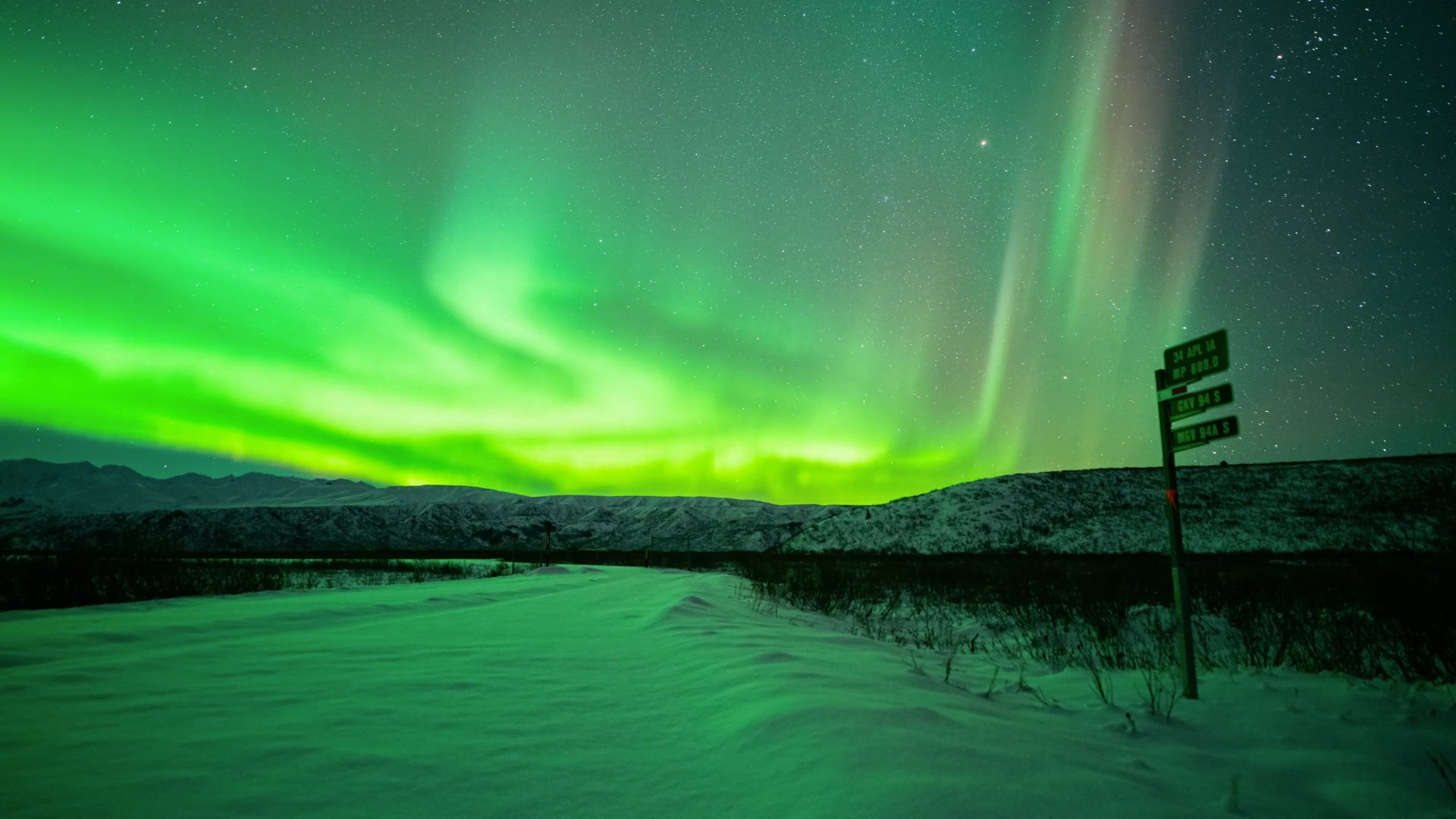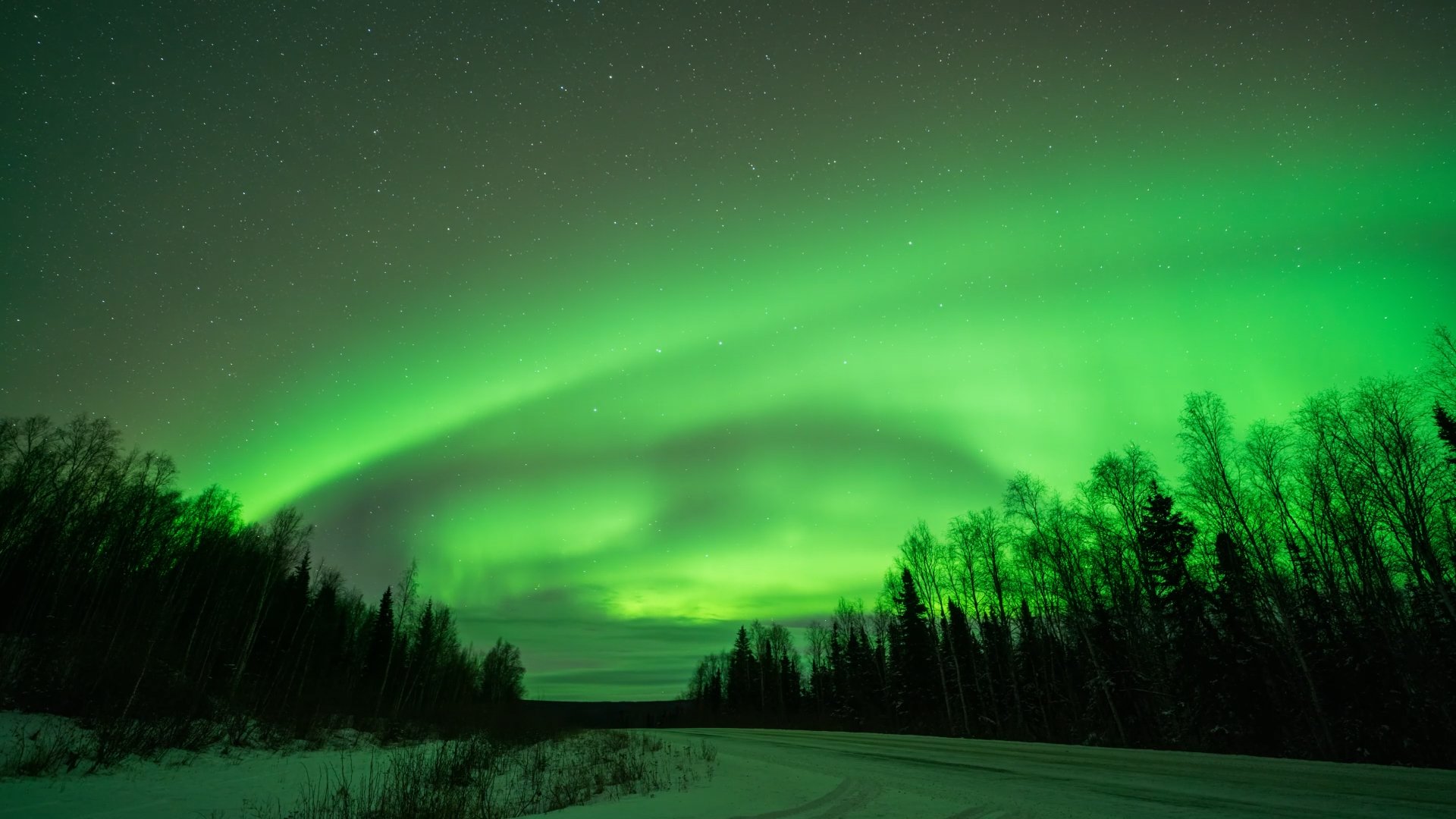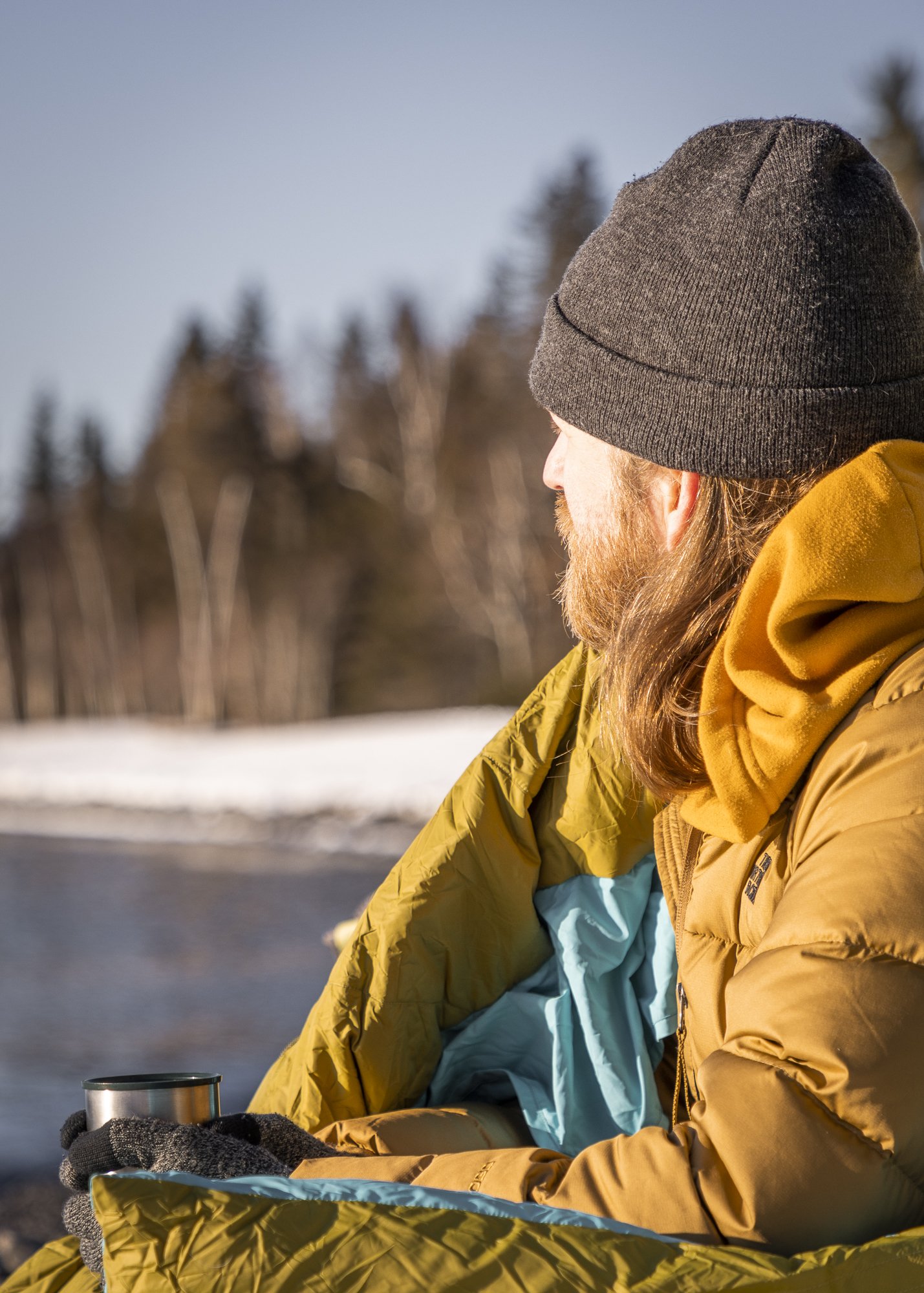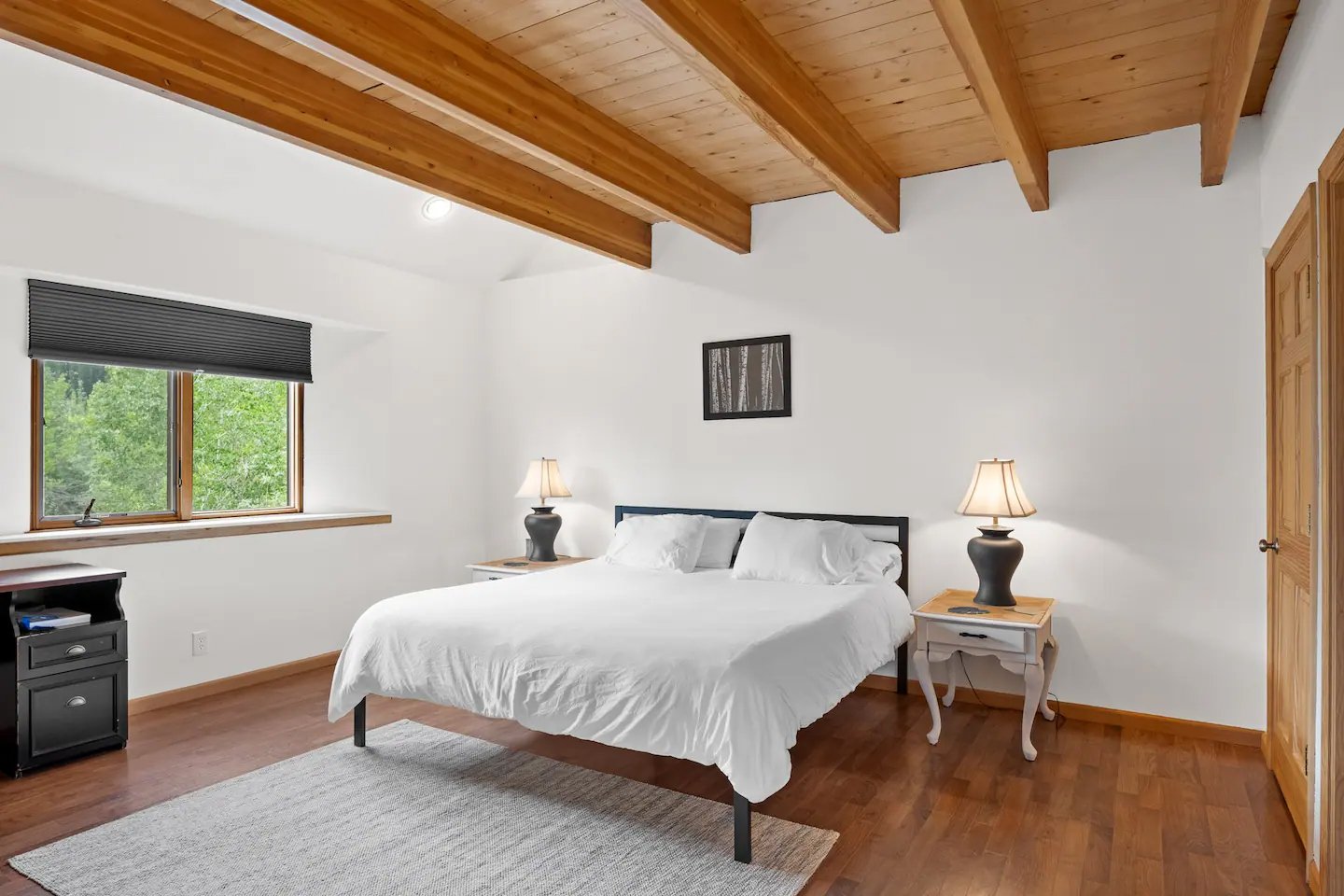
Chasing the Aurora
Fairbanks, Alaska – March 8-15, 2025
Fairbanks, Alaska - March 8-15, 2025
The Northern Lights: an absolutely awe-inspiring natural wonder (and that’s an understatement). Join us as we chase and photograph the Aurora Borealis over 7 nights in Alaska.
Aurora Borealis
The Northern Lights, or Aurora Borealis, is an absolutely awe-inspiring natural wonder. If you've ever seen it first-hand, or ask anyone who has, this is almost certainly an understatement. It's no wonder these spectacular lights have inspired humans' writings (and cave paintings!) throughout religion and lore over thousands of years. Being well-positioned within the Auroral Oval, Fairbanks, Alaska is an excellent destination to see and photograph the Aurora within stunningly beautiful scenery. March is one of the best months to see the aurora because of a scientific phenomenon called the "Russell-McPherron" effect which causes auroras to be stronger during the equinox months of September and March. Also, March is one of the clearest months in Alaska with very little cloud cover – it's possible to have clear skies every night in March!. Throughout this workshop, we will spend our nights chasing the Aurora and clear skies (within a relatively close range of Fairbanks) and offer additional opportunities to explore the area by day. Through all of it, you will learn various night and low-light photography methods including, multiple exposure blending, multiple exposures for stacked processing, low level lighting, timelapse shooting and processing, and various other night sky photography techniques plus small group post-processing instruction.
Highlights of the Workshop
While nothing is guaranteed in nature, we will use the best scientific tools and data available, combined with local knowledge plus a willingness to chase clear skies to give us excellent chances of photographing stunning auroral displays.
Flightseeing opportunities available and included.
Variety of landscapes (Forests, mountains, river ways, and yes...snow).
Wide variety of shooting locations available and scouted within a ~200 mile radius of Fairbanks, Alaska.
Chance to learn a number of low-light and night sky shooting techniques across a variety of conditions.
Small group post-processing instruction is included - you'll be able to develop your images from this workshop under expert instruction and 1-on-1 learning.
Late season shooting means many late nights, but lower chances of cloud cover.
Maximum of 6 participants (3 per instructor) means individual attention and stronger camaraderie and collaboration with fellow photographers.
Red Cross First Aid / CPR Certified; we also travel with Long-range radios, sat phones, and GPS emergency response beacons.
Permitted and insured.
Workshop Cost
Workshop investment is $3,800 per person. One spot is available for a discounted rate $3,450 that includes the loft bedroom (private space, but open walls) vs the other standard rooms.
Teaching Topics
This night photography workshop concentrates on the following teaching topics:
Understand the the basic data and tools that help us determine the likelihood and strength of the Aurora
Planning and composing your shots in the field and through the use of technology
Getting oriented under the stars
Proper camera and exposure settings for night sky photography
Overview and usage of basic and advanced equipment
Calculating appropriate exposure times and settings
Understanding effective compositions
Planning and shooting composite images for clear foreground and sky
Focus-stacking (Shooting and processing)
Low-level lighting techniques for foreground elements
Shooting multiple exposures for image noise reduction
Post-processing workflows
Image editing in Adobe Lightroom and Photoshop
Timelapse editing in LRTimelapse
The visibility of the Northern Lights is highly dependent on weather. Light to moderate cloud cover will not prohibit us from seeing and shooting the Aurora. If we encounter dense cloud cover, we may adjust the shooting locations and/or focus on landscape shooting and education.

The Instructors
Marc Rassel: Landscape Astrophotographer. Outdoorsman. Space Nerd.
Marc is an award-winning and exhibiting landscape astrophotographer and workshop leader based in Minnesota, USA with a particular interest in astronomy. He has traveled to many locations around the world both professionally and personally, and has extensive experience photographing these landscapes and the wonders of the night sky in a wide variety of conditions. Through the experiences of owning and running an advertising and design firm, and formal training in graphic design and fine arts, he has amassed an array of skills that allow him to apply both a technical and aesthetic approach to his work and that of his students. When not leading workshops, Marc spends much of his time in the outdoors exploring and photographing the deep Northwoods of the Midwest and the mountainous landscapes of Colorado.
Vincent Ledvina: Aurora Chaser. Photographer. Scientist. "The Aurora Guy".
Vincent is a professional aurora photographer and accredited space weather scientist. Growing up in St. Paul, Minnesota, Vincent began chasing auroras when he was 16 years old. Receiving his B.S. Physics from the University of North Dakota in 2022, he brought his passion for aurora chasing to North Dakota and colloquially earned the name "The Aurora Guy". Vincent specializes in aurora timelapse photography and real-time video. Combining technical and scientific expertise, Vincent has created stunning timelapse movies from his arctic adventures – he has spent months in remote locations such as Churchill, Manitoba, and Fort Yukon, Alaska aurora chasing and perfecting his craft. Aside from photography, Vincent has extensive knowledge of how to predict the aurora, interpret solar wind data, and is a Fairbanks resident, currently working on his Ph.D. in Space Physics, studying auroral beads at the University of Alaska-Fairbanks.

Recommended Equipment
Sturdy tripod with ball head
Digital SLR and/or mirrorless camera body with full manual control, preferably full-frame sensor (although cropped / APS-C will work)
Wide angle lens(es) with fast aperture (f2.8 or better). Some great lenses for night sky photography include the Nikon 14-24mm f/2.8, Canon 16-35mm f/2.8L III, Rokinon 14mm f/2.8 (or 24mm), Tamron 15-30mm f/2.8
Zoom of approximately 24-105mm
If you have a telephoto (200mm+) and it’ll fit your travel plans, bring it along – you never know what we might find out in the field
Polarizing filters if you have them
Basic headlamp
Remote shutter release or basic intervalometer
Memory cards
Extra batteries (at least 3 fully-charged batteries per night)
Camera / lens cleaning supplies
Laptop / Lightroom and Photoshop software + file transfer accessories if you’d like to follow along during post-processing sessions
Hard drives and file backup accessories
If you don’t have everything you need, please contact me, I may be able to rent you the gear you need.
Trip Includes
7 Nights Lodging with private rooms in large shared cabin
Airport pick-up and drop-off
Local transportation
Flightseeing opportunities
Light snacks and refreshments (Hot beverages are a must!)
Professional guides
Field instruction
Post-processing instruction
Shared lighting equipment and stands
Photography guiding and instruction throughout the trip
Some shared meals
Trip Does NOT Include
Airfare
Camera equipment
Laptop / post-processing software
Meals out
Alcohol
Suggested Packing List
Layered, warm clothing (We are likely to experience a very cold, wide range of temperatures, potentially from -40°F to 20°F)
Warm base layers for legs and torso, gloves, hat, jacket, shirts, snow pants, wool socks, face mask / balaclava and footwear / snow boots suitable for extremely cold weather. (**Avoid cotton in favor of wool fibers whenever possible!)
Water bottles / hydration packs
**We will provide hand / foot warmers, and hot beverages as needed throughout the workshop.
Important Workshop Information
Schedule: Upon arrival we will get together for a meet-and-greet and required introductory session including workshop timeline overview, field safety, and night shooting preparation. Following this session the group will have some personal time for rest, dinner, and gear prep before we head out for our first night. Depending on Auroral activity, overnight temperatures, and the group's ability to stay up all night, we may be out shooting until sunrise so please be prepared for some late nights and cold temperatures – don't worry, once the awe of the Aurora has you in her grip you won't even notice (plus we'll keep the vehicle nice and warm!)
Arriving in Fairbanks: The nearest airport is Fairbanks International Airport, less than 15 miles from our lodge. If you plan to arrive outside of the designated pick-up and drop-off times, you will need to arrange a ride from and to the airport.
Transportation during the Workshop: We will be traveling to and from our lodge and shooting locations via a full size SUV / van and standard SUV convoy each night with plenty of room for us and all of our gear.
Weather: Winter weather can be highly variable and unpredictable in Alaska and temperatures can be very cold.
Cancellation Policy: We reserve the right to cancel the workshop if minimum participants are not met or in the event of an emergency. If a cancellation does occur, participants may either use the fee towards a future workshop or receive a full refund. We highly recommend Travel Insurance to cover any non-refundable fees or medical coverage during the workshop.








